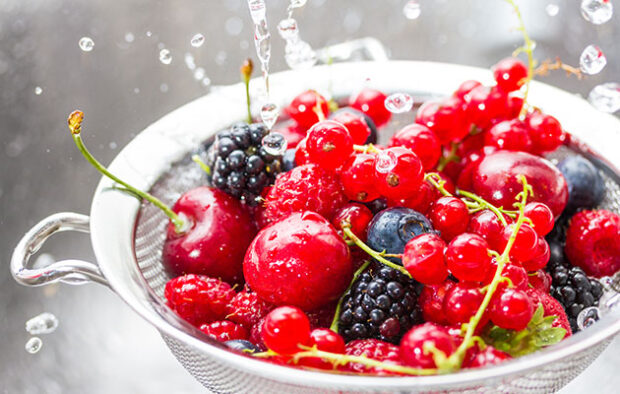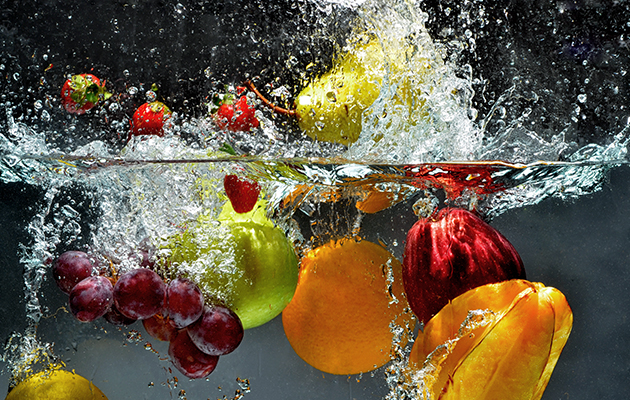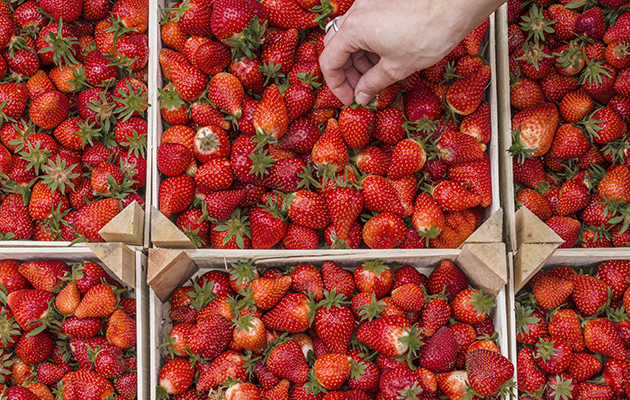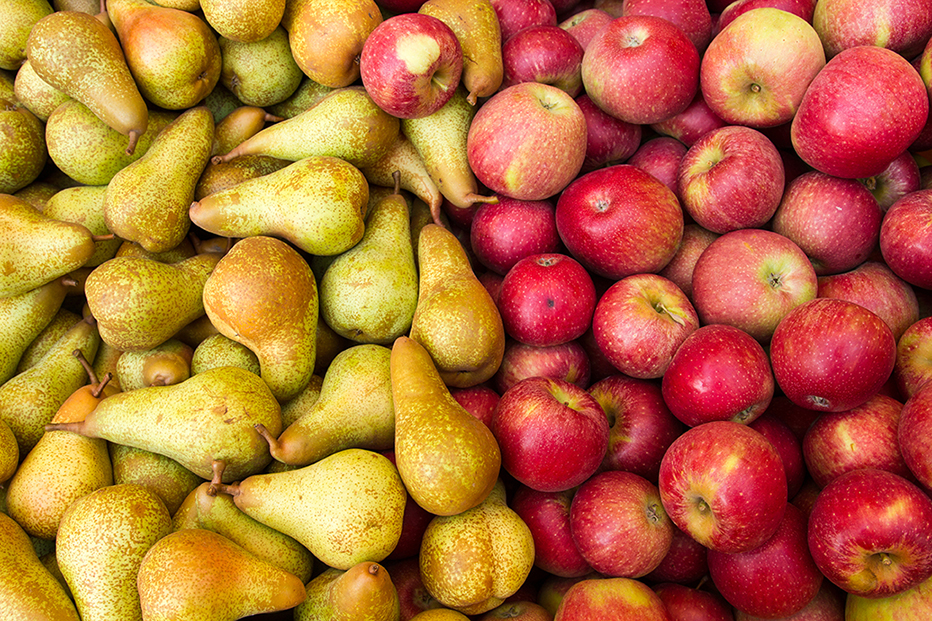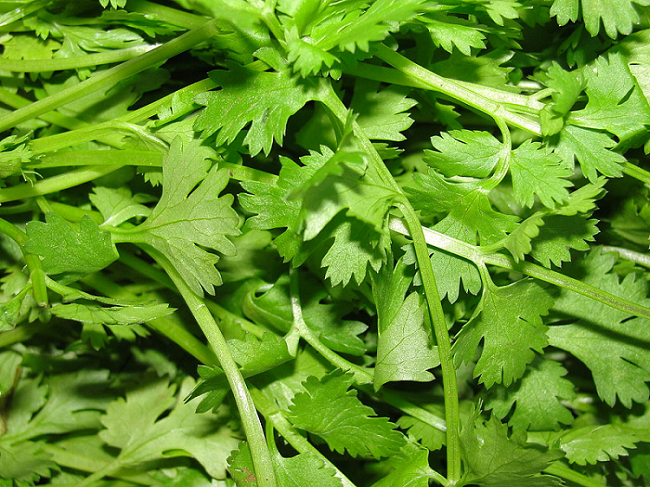Does an apple a day really keep the doctor away? No matter how pretty and colorful fruits look, don’t be fooled by their appearance! Fruits are in fact a lot dirtier than we think. Our cleaning expert in Germany Roxanna Pelka goes into more details on how to maintain your fruit hygiene. You would be surprised to hear that even avocados and mangoes require extensive rinsing.
The Walking Germs: Invisible Germ Traps
The fruits that we eat have traveled thousands of kilometers before they are served in our fruit platters. In addition, to extend its shelf-life they are often sprayed with toxic pesticides and coated with wax which can cause many side effects such as fever and headaches which can in some cases lead to food poisoning, diabetes or asthma. Yet another major reason why we should always maintain our fruit hygiene in the kitchen. Don’t forget to read more on how to keep your fruits fresh for longer.
Another germ trap is our local supermarket just down the street. During your next grocery shopping trip, make sure to take your time at the fruit stand and observe the customers while they carefully pick out their fruits. You will find people picking up the fruit and smelling them at close proximity or checking the ripeness of the fruit with their dirty hands. Shockingly enough, our own hands contain up to 4700 different types of bacteria!
However, our hands aren’t the only magnet for germs and dirt: flies love to lay their eggs in fruit boxes! This is how you can get rid of fruit flies all together.
Peaches and strawberries: Don’t be fooled by appearance
No matter how juicy and fresh strawberries look, we should resist the temptation of nibbling on them before arriving back home. Due to the constant threat of pests, insects and unsettling weather conditions during the farming process, fruits and veggies are often sprayed with pesticides around 20 times per week with at least 30 different types of pesticides. Furthermore, some produce are also coated with shelf-life extending wax. Hence why it’s always very important to wash your fruits before eating, no matter how plump and juicy they look.
According to the Federal Office of Consumer Protection, produce such as peaches, peppers and potatoes showed higher concentrations of pesticides than many other produce. Hence why they should be rinsed for a few seconds longer.
The Rescue: Clean your fruits properly
It really is as simple as it sounds: washing your fruits properly in cold water is the number one priority when it comes to keeping your fruit hygiene and avoiding any negative side effects. In fact, after only 15 seconds of washing, the cold water can reduce up to 98 % of the bacteria found in the produce. But try and keep it simple: Don’t wash the fruit for too long, otherwise you will damage the natural protective layer around the produce and lose important vitamins. Also be sure to consume the fruits and veggies right after washing them because bacteria loves to multiply in damp surrounding.
Still have doubts on how to wash specific fruits or veggies? Our cleaning expert in Germany, Roxanna, has listed the most common produce and the techniques to clean them:
Berries and grapes:
Soft fruits such berries and grapes should be soaked in water instead of washed under running water. After being soaked for a few minutes, let the fruit dry on a paper towel.
Apples and pears:
Instead of peeling the fruit, wash it thoroughly, making sure that you are taking in the recommended daily dose of vitamins which can be found in the skin of apples and pears.
Melon, mango and avocados:
Even though we don’t eat the skin of melon’s, mango’s and avocados, the germs and pesticides can reach the fruit pulp while peeling and cutting them through the blade or our hands. Rinse the skin with warm water before preparing your next fruit salad (as opposed to warm water). Another rather effective trick to disinfect them is to spray them. In a spray bottle, mix one tablespoon of white vinegar and one of lemon juice with one cup of water. Spray the mixture on the skin of melon or similar fruits and let them soak for about 10-12 minutes. Rinse the fruits under water and they are ready to be peeled off.
Potatoes, carrots and squash:
Brush away the dirt on the vegetables with a vegetable brush. After doing so, you have to still wash the products, peel them and then wash again – it is always best to be extra careful with fruits seeing as the effects can be quite bad.
Salad:
A common question people have is should you wash salads that are labelled “washed and ready to eat”? The answer is: YES! Pre-washed salads are often full of yeasts and mildew, which can cause gastrointestinal discomfort. Let the lettuce soak in cold water, so that minerals won’t be washed away. Then dry the leaves in a salad spinner. Extra tip: Acidic salad dressings can have disinfectant effects! Oil and vinegar salad dressing mixtures will reduce the bacterial count on your salad to less than 1 percent!
If you have any further questions you can always ask our Helpling experts.
Don’t forget to book one of our Helpling cleaners to make sure your home is always sparkling clean. They can also take care of your kitchen hygiene!




